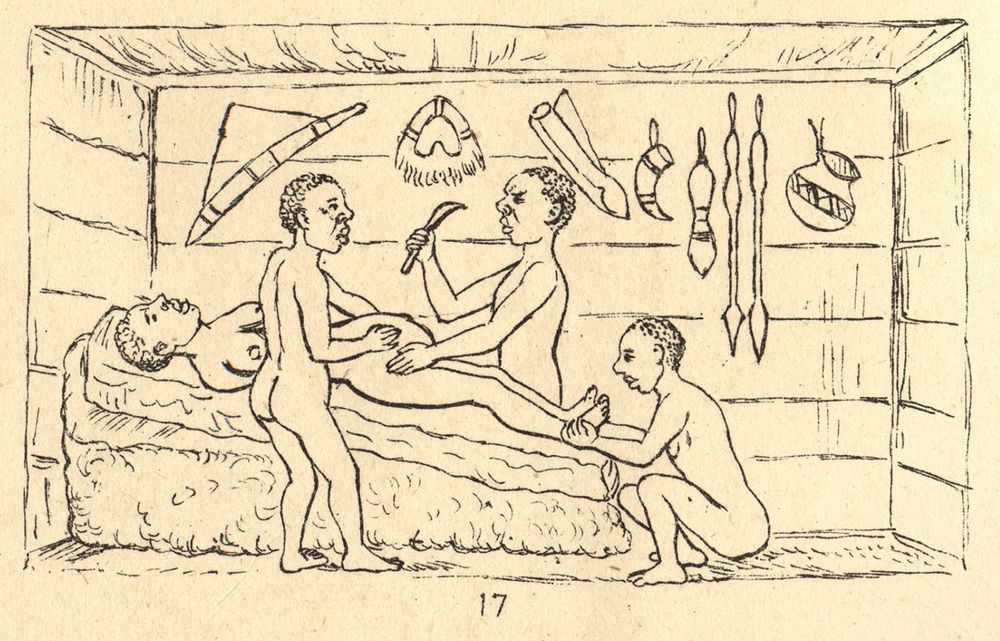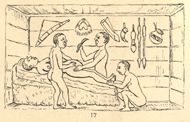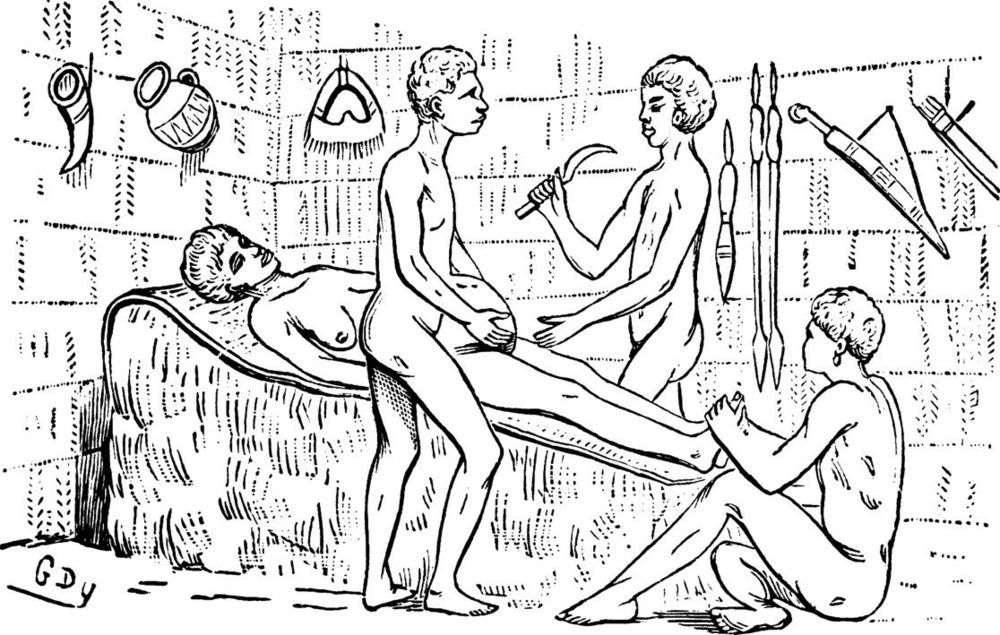Page 9116
Feb 9, 2019
The US Army’s Strange Inspiration for Its Next Rifle: The iPhone
Posted by Quinn Sena in category: mobile phones
Basically, it sounds like the Army is looking to build a stable platform, like iOS, that it can build increasingly sophisticated weapon technologies on top of.
“Imagine that Steve Jobs and his engineers were trying to convert the iPod Touch to the first 3G iPhone,” Caggins told Task & Purpose. “There were a thousand technologies they could have put in the first iPhone but they were looking to mature the platform before they could actually go onto the system.”
Feb 9, 2019
Everyone is Talking About our Post-Human Future. It’s a Fairytale
Posted by Mark Larkento in category: transhumanism
Talking about fairytales, this article embodies a fairytale of its own — the fairytale that we have to accept human nature as a given. That kind of fatalism will lead society to disaster in the decades ahead. Instead, we can, and must, do better, to secure a “Humanity+ future” ~ David Wood.
The idea that new technologies can liberate us from the human condition is a fantasy. In reality, the 21st-century will be all too human.
Feb 9, 2019
The Book of Gates
Posted by Steve Nichols in categories: life extension, robotics/AI, space
God” according to Rev Benek is working thru people like me who are pioneers in the AI and uploading field — and I am developing a Zenet interface for artificial death simulating the Khemetic afterlife — not a Judeo-Christian version. Osiris is a key deity in Zenet, and has a special place in Mormonism btw. There are good technical reasons for using Zenet. Objectives for the dead are slightly different than play strategy for the living in Zenet (having already passed over the dangerous waters). It is the Bridge between Worlds perfect for artificial-death, no biblical or koranic account exists how to communicate between living and deceased. “The betterment of mankind” imo involves the Restoration of Ma’at. And the Egyptian afterlife is available to all races (not just chosen people) — “Hour Five is one of the most complex hours within the composition. In the upper registers, the gods are portrayed with a surveying cord, because the deceased are allotted space (in the form of fields) within this hour. The deceased are also allotted time, and hence the gods also carry the body of a serpent and the hieroglyphs meaning “lifetime” in the lower register. In order to accomplish this, the Apophis fiend, known as “the Retreater, must once again be battled and fettered. Behind Apophis we notice the ba-souls of the blessed dead, and at the beginning of the lower register are found the four ”races” of mankind, including Egyptians, Asiatics, Nubians and Libyans. Each race is represented by four individual figures, who are assured existence in the afterlife. They are placed in the care of Horus and Sakhmet. It should be noted that the Great Hymn of Akhenaten, Aten is said to care even for foreign people, and hence, they are sheltered in the realm of the dead, according to Even if the uploading doesn’t take, this belt and braces offering still offers (conventional religious) Immortality with Horus, Amen, Isis, Thoth and the gang. Why does it matter which ”God(s)” — so long as we make it to the (1st) afterlife with the bonus of communication with the living?
Funerary Text from Egypt’s New Kingdom.
Feb 9, 2019
Scientists Want to Build a Space Station Inside an Asteroid
Posted by Michael Lance in category: space
Feb 9, 2019
Data Driven Investor
Posted by Klaus Baldauf in categories: biotech/medical, business, government, mobile phones
How competing software, hardware and political ideology could accelerate existing divisions in humanity into the future
It’s been great to get people’s thoughts and feedback on the last article on “The iPhone 20”. Some of your responses considered that given Apple’s business model is effectively a walled garden, this makes any integration with the human body very unlikely in the future.
That’s why in this article, rather than focusing on Apple, I’ll look to explore some of the ways tech companies and organisations (including government bodies) will compete on software, hardware and protocols that will shape humanity’s journey to 2029, which may accelerate our existing divisions that stifle collaboration and splinters our future societies.
Feb 9, 2019
Inside China’s High-Tech Dystopia
Posted by Derick Lee in categories: business, government, mobile phones, robotics/AI

In part three of Hello World Shenzhen, Bloomberg Businessweek’s Ashlee Vance heads out into a city where you can’t use cash or credit cards, only your smartphone, where AI facial-recognition software instantly spots and tickets jaywalkers, and where at least one factory barely needs people. This is the society that China’s government and leading tech companies are racing to make a reality, with little time to question which advancements are net positives for the rest of us.
Part One — Inside China’s Future Factory.
https://www.youtube.com/watch?v=eLmaIbb13GM
Feb 8, 2019
Cesarean Section — A Brief History
Posted by James Christian Smith in categories: biotech/medical, food
While Barry applied Western surgical techniques, nineteenth-century travelers in Africa reported instances of indigenous people successfully carrying out the procedure with their own medical practices. In 1879, for example, one British traveller, R.W. Felkin, witnessed cesarean section performed by Ugandans. The healer used banana wine to semi-intoxicate the woman and to cleanse his hands and her abdomen prior to surgery. He used a midline incision and applied cautery to minimize hemorrhaging. He massaged the uterus to make it contract but did not suture it; the abdominal wound was pinned with iron needles and dressed with a paste prepared from roots. The patient recovered well, and Felkin concluded that this technique was well-developed and had clearly been employed for a long time. Similar reports come from Rwanda, where botanical preparations were also used to anesthetize the patient and promote wound healing.
In Western society women for the most part were barred from carrying out cesarean sections until the late nineteenth century, because they were largely denied admission to medical schools. The first recorded successful cesarean in the British Empire, however, was conducted by a woman. Sometime between 1815 and 1821, James Miranda Stuart Barry performed the operation while masquerading as a man and serving as a physician to the British army in South Africa.
Feb 8, 2019
Robert Felkin MD (1853–1926) and Caesarean delivery in Central Africa
Posted by James Christian Smith in category: biotech/medical
#BlackHistoryMonth It was as a pupil at Wolverhampton Grammar School that Robert William Felkin met the explorer David Livingstone, who inspired him with his tales of Africa. And when he met A M Mackay, a medical missionary from Uganda, in London in 1877 at the age of 24, he became determined to visit Africa.
It was as a pupil at Wolverhampton Grammar School 1that Robert William Felkin met the explorer David Livingstone, who inspired him with his tales of Africa. And when he met A M Mackay, a medical missionary from Uganda, in London in 1877 at the age of 24, he became determined to visit Africa.
By 1875 he had become a medical student at Edinburgh University, but before completing his training, he was sent to Uganda in 1878 by the Church Missionary Society. He travelled up the Nile to Khartoum, where he met General Gordon, and then on through what was then wild and unmapped country to the Great Lakes. There he met Emin Pasha, the Governor of the Equatorial Province, and was presented to King M’tesa, whose personal physician he became in 1879. When a Muslim anti-missionary movement threatened the lives of his fellow Christians, Felkin warned the King that, should any harm come to them, a great disaster would befall his people. As a sign he foretold that the sun would be darkened; in due course the anticipated eclipse occurred and Felkin was established as a great “medicine man.” During his stay in Uganda he studied the local diseases and also undertook anthropological measurements of the pygmies. Of particular interest, though, were his studies on childbirth.
Continue reading “Robert Felkin MD (1853–1926) and Caesarean delivery in Central Africa” »


















